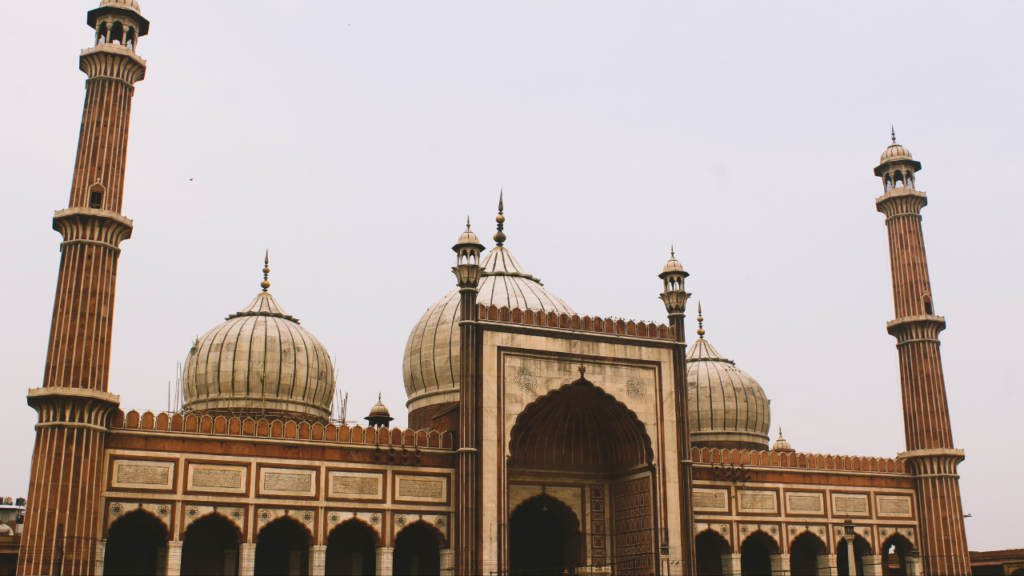Who was Abu Bakr Siddiq?
The Life, Faith, and Legacy of a Pioneering Figure in Islamic History

Who was Abu Bakr Siddiq?
Abu Bakr Siddiq, full name Abu Bakr bin Abi Quhafa, was a close companion and the first caliph (successor) of the Islamic prophet Muhammad. He played a pivotal role in the early days of Islam and is considered one of the most prominent and respected figures in Islamic history.

Introduction
Abu Bakr Siddiq, often referred to simply as Abu Bakr, was a prominent figure in Islamic history and a close companion of the Prophet Muhammad (peace be upon him). He is recognized as the first Caliph of Islam, playing a pivotal role in the early development and expansion of the Muslim community. This article delves into the life and contributions of Abu Bakr Siddiq, shedding light on his remarkable journey.
Early Life and Friendship with the Prophet
Abu Bakr was born in the city of Mecca in the year 573 CE, just two years after the birth of the Prophet Muhammad. He hailed from a respectable and well-off family of the Quraysh tribe, which was the dominant tribe in Mecca. Known for his honesty, integrity, and moral character, Abu Bakr earned the nickname “As-Siddiq,” which means “The Truthful” or “The Trustworthy.” These qualities would define his life and make him an integral figure in the nascent Islamic community.
Abu Bakr and the Prophet Muhammad were childhood friends and remained close throughout their lives. When the Prophet received his first revelation in 610 CE, he turned to Abu Bakr, sharing the message of Islam with him. Without hesitation, Abu Bakr accepted Islam and became one of its earliest converts. His unwavering faith and support earned him a special place in the heart of the Prophet Muhammad.
Abu Bakr’s Role in the Early Muslim Community
Abu Bakr’s commitment to Islam was unwavering, even during the difficult early years when Muslims faced severe persecution in Mecca. He used his wealth to free slaves who had converted to Islam but were being tortured by their masters. His willingness to sacrifice his own comfort and resources for the sake of his faith and fellow believers exemplified his devotion.
In 622 CE, when the situation in Mecca became unbearable for the Muslims, the Prophet Muhammad and his followers, including Abu Bakr, migrated to the city of Medina. This migration, known as the Hijra, marked a crucial turning point in Islamic history. Abu Bakr’s support and companionship during this challenging journey further solidified his position as the Prophet’s closest confidant.
Also Check
- Why was Jerusalem important to Muslims?
- Is Milk Halal in Islam?
- Why did Ghazwa Khandaq happen?
- What is the difference between Islam and Muslim?
- Can Muslims drink alcohol?
Abu Bakr’s Leadership as the First Caliph
After the death of the Prophet Muhammad in 632 CE, Abu Bakr was elected as the first Caliph (successor) by the Muslim community. His leadership was marked by wisdom, compassion, and a deep commitment to preserving the unity of the Islamic state.
One of his most significant challenges as Caliph was dealing with the Ridda Wars, a series of conflicts that arose as some tribes and individuals renounced Islam following the Prophet’s death. Abu Bakr took swift and decisive action to maintain the integrity of the nascent Islamic state, earning him the title “Khalifatul-Rasul,” meaning “Successor of the Messenger.”
Abu Bakr’s most enduring achievement was the compilation of the Quran into a single book. During his time as Caliph, he tasked Zaid ibn Thabit, a skilled scribe and companion of the Prophet, with collecting all the Quranic revelations and organizing them into a coherent manuscript. This compilation ensured the preservation of the Quran in its original form, a legacy that continues to shape the lives of Muslims worldwide.
Death and Legacy
Abu Bakr’s tenure as Caliph was relatively short, as he passed away in 634 CE, just two years after assuming leadership. He was succeeded by the second Caliph, Umar ibn al-Khattab. Abu Bakr’s death marked the end of an era and the beginning of a golden age of Islamic expansion and scholarship.
Abu Bakr Siddiq’s legacy endures through his steadfast devotion to Islam, his unwavering support for the Prophet Muhammad, and his exceptional leadership as the first Caliph. His life serves as an inspiration to Muslims worldwide, emphasizing the values of truth, compassion, and selflessness. His contributions to the early Islamic community played a pivotal role in shaping the course of history and laying the foundations of one of the world’s major religions.
Conclusion
Abu Bakr Siddiq’s life is a testament to the transformative power of faith and steadfastness. As the first Caliph of Islam, he played a pivotal role in the development and preservation of the Muslim community. His unwavering commitment to the Prophet Muhammad and the principles of Islam has left an indelible mark on the history of the religion and continues to inspire Muslims around the world today. Abu Bakr Siddiq will forever be remembered as “As-Siddiq,” the truthful and trustworthy friend and leader of the early Muslim community.

Who was Abu Bakr Siddiq?
Who was Abu Bakr Siddiq?
Abu Bakr Siddiq, full name Abu Bakr bin Abi Quhafa, was a close companion and the first caliph (successor) of the Islamic prophet Muhammad. He played a pivotal role in the early days of Islam and is considered one of the most prominent and respected figures in Islamic history.
What is Abu Bakr Siddiq known for?
Abu Bakr Siddiq is primarily known for his unwavering support and loyalty to the Prophet Muhammad during the early days of Islam, his significant contributions to the spread of Islam, and his role as the first caliph of the Islamic community after the death of Prophet Muhammad.
When and where was Abu Bakr Siddiq born?
Abu Bakr Siddiq was born in the year 573 CE in Mecca, which is now part of modern-day Saudi Arabia.
How did Abu Bakr Siddiq convert to Islam?
Abu Bakr Siddiq embraced Islam in the early days of the Islamic message, after hearing the message of Prophet Muhammad. His conversion was a result of his deep belief in the teachings of Islam and his strong faith in Muhammad as the final prophet.
What was Abu Bakr Siddiq’s role during the lifetime of Prophet Muhammad?
Abu Bakr Siddiq played a pivotal role in the life of Prophet Muhammad. He was one of the Prophet’s closest companions and supporters. He accompanied Muhammad on the migration (Hijrah) from Mecca to Medina, provided financial support to the early Muslim community, and served as an advisor and confidant to the Prophet.
Why was Abu Bakr Siddiq chosen as the first caliph of Islam?
Abu Bakr Siddiq was chosen as the first caliph after the death of Prophet Muhammad due to his exceptional character, leadership qualities, and the consensus of the early Muslim community. He was known for his piety, wisdom, and deep knowledge of Islam, making him a natural choice to lead the nascent Islamic state.
What were some of Abu Bakr Siddiq’s accomplishments as caliph?
During his caliphate, Abu Bakr Siddiq faced various challenges, including the Ridda Wars (apostasy wars) and the compilation of the Quran. He successfully united the Arabian Peninsula under the banner of Islam and played a crucial role in preserving and documenting the Quranic revelations.
How long did Abu Bakr Siddiq serve as the caliph?
Abu Bakr Siddiq’s caliphate lasted for approximately 2 years and 3 months. He became caliph in 632 CE after the death of Prophet Muhammad and passed away in 634 CE.
What is the significance of Abu Bakr Siddiq in Sunni Islam?
In Sunni Islam, Abu Bakr Siddiq holds a special place of honor as the first caliph and one of the “Rightly Guided Caliphs.” He is considered a role model for Muslims due to his steadfast faith and dedication to Islam.
Are there any historical sites associated with Abu Bakr Siddiq?
Yes, there are several historical sites associated with Abu Bakr Siddiq, including his tomb, which is located in Medina, Saudi Arabia. Pilgrims and visitors often pay their respects at his resting place as a sign of reverence.






